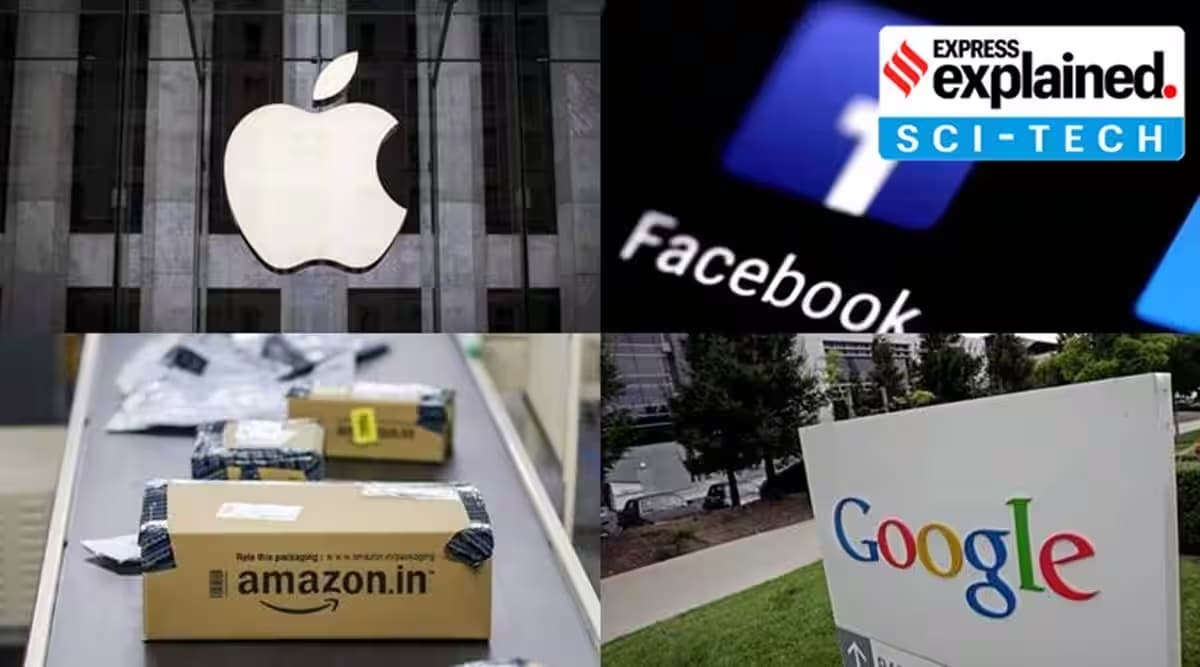As Europe’s sweeping rules to regulate the ways in which big tech uses algorithms to target users kick in, a number of companies including Meta, Google, and Snap, have been forced to make changes to their platforms — including more disclosures on how they use artificial intelligence (AI) to offer “personalised” content to users, and allowing them the option to opt out of being subjected to digital surveillance by these platforms.

Key features of the Digital Services Act
* Faster removals, opportunity to challenge: Social media companies are required to add “new procedures for faster removal” of content deemed illegal or harmful. They must explain to users how their content takedown policy works. Users can challenge takedown decisions, and seek out-of-court settlements.
* Bigger platforms have greater responsibility: The legislation has junked the one-size-fits-all approach and put a greater burden of accountability on the big tech companies. Under the DSA, ‘Very Large Online Platforms’ (VLOPs) and ‘Very Large Online Search Engines’ (VLOSEs), that is, platforms with more than 45 million users in the EU, have more stringent requirements.
* Direct supervision by the European Commission: These requirements and their enforcement will be centrally supervised by the European Commission itself, ensuring that companies are not able to sidestep the legislation at the member-state level.
* More transparency on how algorithms work: VLOPs and VLOSEs will face transparency measures and scrutiny of how their algorithms work, and will be required to conduct systemic risk analysis and reduction to drive accountability about the societal impacts of their products. VLOPs must allow regulators and researchers to access their data to assess compliance and identify systemic risks of illegal or harmful content.
* Clearer identifiers for ads and who’s paying for them: Online platforms must ensure that users can easily identify advertisements and understand who presents or pays for the ads. They must not display personalised ads directed towards minors or based on sensitive personal data.
Story continues below this ad
Changes big tech has been forced to make
The DSA imposes heavy penalties for non-compliance, which can be up to 6 per cent of the company’s global annual turnover. Companies that do not wish to abide by the rules cannot function within the EU. Due to the harsh repercussions and the threat of losing a market of around 450 million users, major social media companies have fallen in line, and announced they will allow more freedom to users in the way they interact with their platforms.
* Meta: The company that operates Facebook and Instagram has said it will introduce non-personalised digital feeds.
“We’re now giving our European community the option to view and discover content on Reels, Stories, Search and other parts of Facebook and Instagram that is not ranked by Meta using these [AI recommender] systems,” Meta’s president of global affairs, Nick Clegg said in a blog post.
Story continues below this ad
“For example, on Facebook and Instagram, users will have the option to view Stories and Reels only from people they follow, ranked in chronological order, newest to oldest. They will also be able to view Search results based only on the words they enter, rather than personalised specifically to them based on their previous activity and personal interests,” he added.
* Google: The Internet search giant has said it will increase how much information it provides about ads targeted at users in the EU. It will also expand data access to third party researchers studying systemic content risks in the region.
“We will be expanding the Ads Transparency Center, a global searchable repository of advertisers across all our platforms, to meet specific DSA provisions and providing additional information on targeting for ads served in the European Union,” Google wrote in a blog post on “Complying with the Digital Services Act”.
* Amazon: The e-commerce giant sued the EU last month over its classification as a VLOP, which would require the company to comply with the DSA’s stringent norms. This was the first legal challenge to the law.
Story continues below this ad
So far, the EU has designated 19 sites as VLOPs: Alibaba AliExpress, Amazon Store, Apple AppStore, Booking.com, Facebook, Instagram, Google Maps, Google Play, Google Shopping, LinkedIn, Pinterest, Snapchat, TikTok, Twitter (rebranded as X), Wikipedia, YouTube, Zalando, Microsoft Bing and Google Search.








































